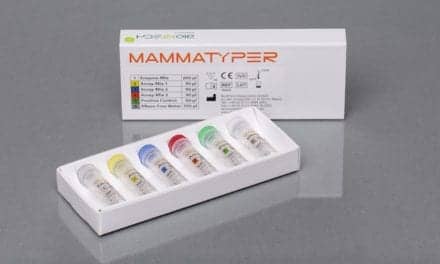Data from ongoing clinical validation studies demonstrate that a precision cancer monitoring technology from Trovagene Inc, a developer of cell-free molecular diagnostics, is suitable to noninvasively determine oncogene mutation status in patients with malignant disease.
The interim results are from a study conducted by Filip Janku, MD, PhD, of the University of Texas MD Anderson Cancer Center, and were published online in Oncotarget ahead of print publication.
Trovagene is engaged in collaborations to demonstrate the clinical utility of its precision cancer monitoring platform for detecting the mutational status of cancer patients, and assessing tumor dynamics and treatment response over time. The company has processed more than 800 patient samples under these collaborations, and is developing the clinical evidence to support broad market adoption of its technology.
The data published in Oncotarget demonstrate that oncogene mutations in patients with Erdheim-Chester disease (ECD), a rare histiocytic disorder, can be effectively detected using urinary cell-free DNA as a specimen. It has only recently been recognized that more than half of patients with ECD harbor the BRAF V600E mutation, and BRAF inhibitors present a powerful novel treatment option for these patients. Hence, confirming the presence of this mutation is critical for treatment selection. However, in approximately 60% of ECD patients, biopsies do not provide adequate sample material to identify the mutation. Investigators therefore decided to utilize Trovagene’s noninvasive cell-free DNA technology to evaluate patients diagnosed with ECD.
“We know that more than 50% of patients with ECD harbor BRAF V600E mutations, but in a substantial number of patients, we cannot obtain enough tissue from biopsy material to adequately confirm a mutation for treatment and monitoring,” said Janku. “This diagnostic approach can clarify the mutational status of individuals with ECD and assist in making treatment decisions using an easy to obtain urine sample. We look forward to further investigating the capabilities of this technology and presenting additional findings as more data become available.”
In a six-patient subset of this ongoing study, the presence of the BRAF V600E mutation was evaluated from tissue biopsies, urine samples, and plasma samples. Trovagene’s precision cancer monitoring technology demonstrated 100% concordance for detection of the mutation in urine samples when compared to tissue biopsy, and also identified the BRAF V600E mutation in two patients where results from tissue biopsies were inconclusive. To date, the study has been significantly expanded to recruit additional histiocytic patients and to assess their response to BRAF inhibitor treatment over time. Additional study results will be presented on June 2, at the annual meeting of the American Society of Oncology (ASCO).
“The Oncotarget paper validates that we can determine oncogene mutation status from cell-free DNA in urine in order to drive treatment selection for patients with malignancies,” said Mark Erlander, PhD, chief scientific officer of Trovagene. “Demonstrating clinical utility in histiocytic diseases serves as a strong clinical model for our noninvasive approach, given the importance of correctly identifying the presence of a driver mutation, and the need to overcome the frequent limitations of tissue biopsies. This publication is an important step in our continued work to demonstrate the full potential of our precision cancer monitoring platform.”
For further information, visit Trovagene Inc.




